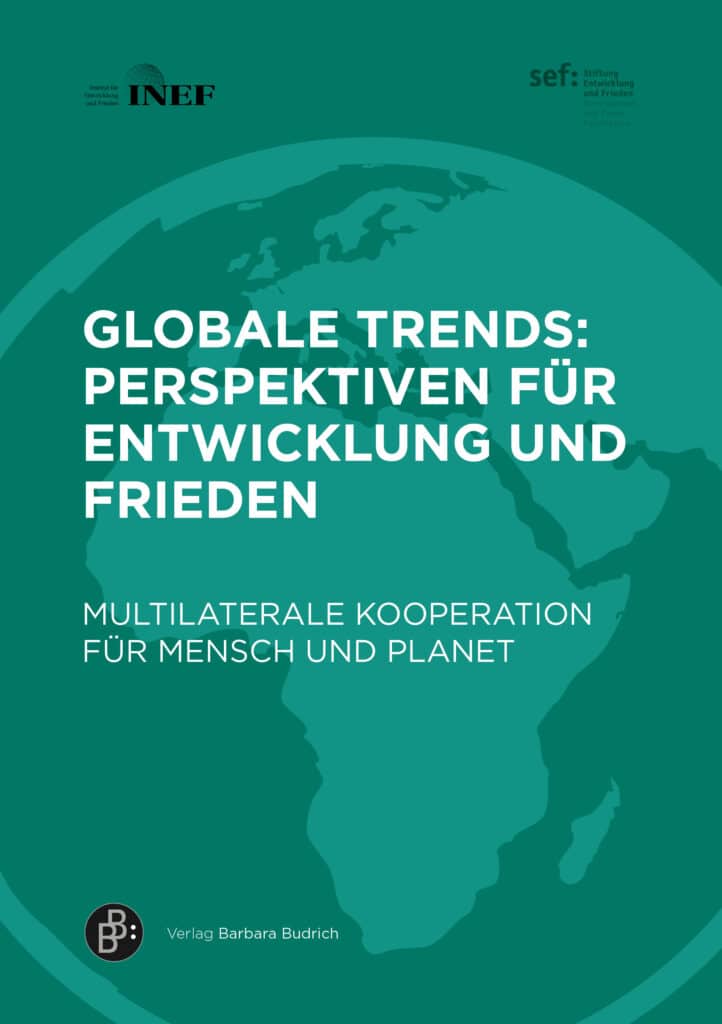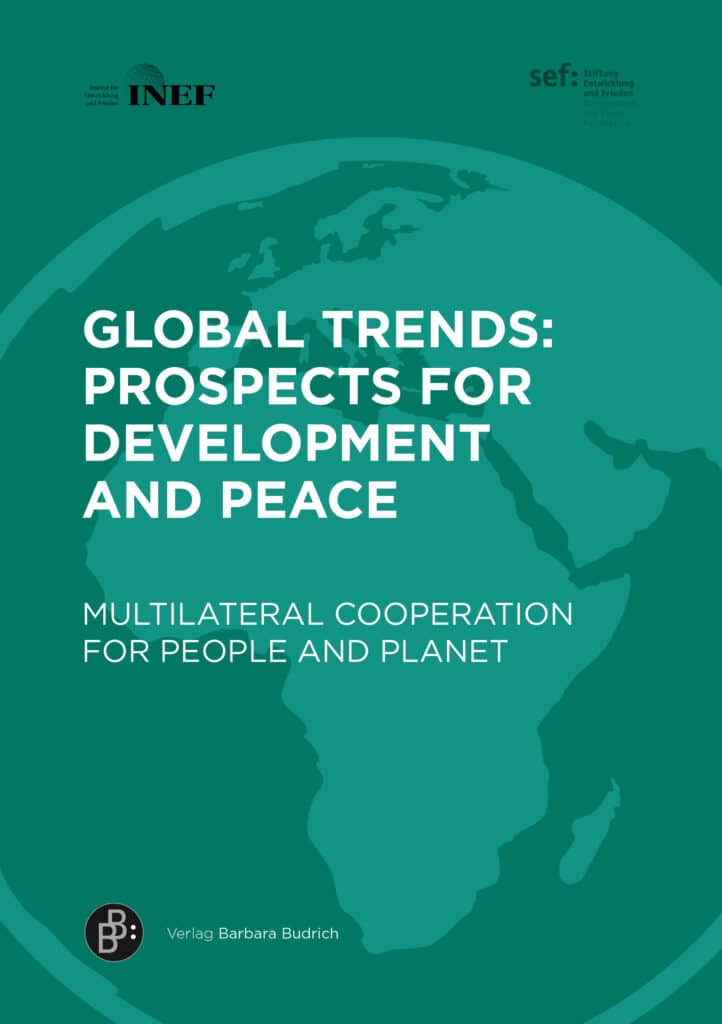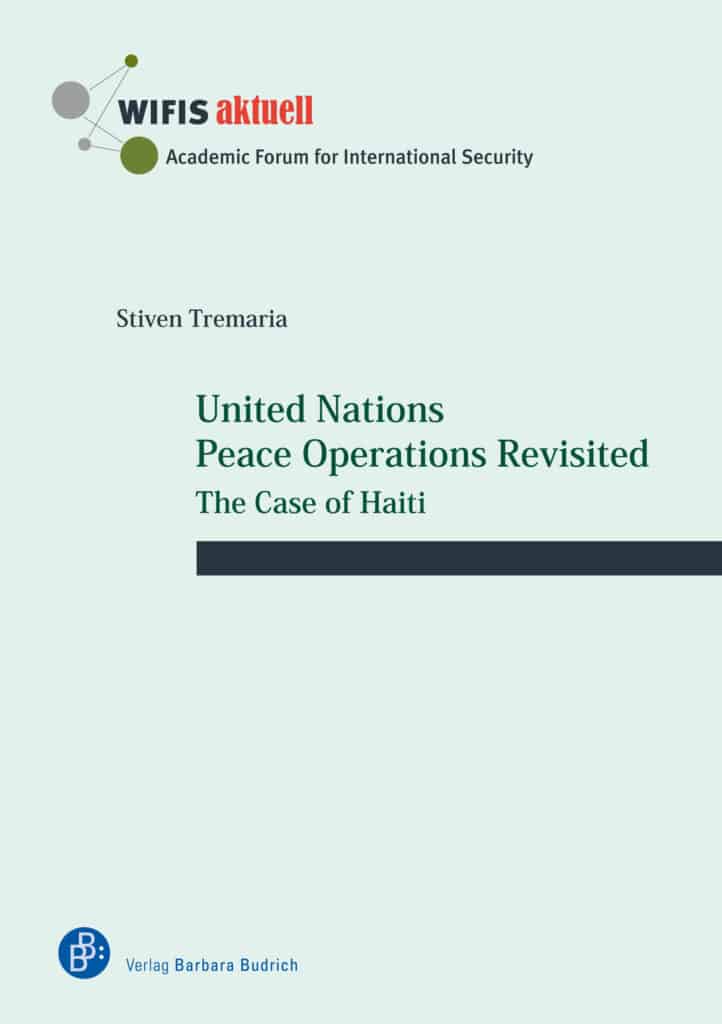Informationen zum Buch
Home » Publications » Democracy under stress
Democracy under stress
The global crisis and beyond
Erscheinungsdatum : 29.11.2011
29,90 €
Beschreibung
Open Access: The book Democracy under stress (DOI: 10.3224/86649453) is an Open Access title which is free to download as PDF or can be bought as paperback. The book is licensed under Creative Commons Attribution-ShareAlike 4.0 International (CC BY-SA 4.0): https://creativecommons.org/licenses/by-sa/4.0/
Open Access: Der Titel Democracy under stress (DOI: 10.3224/86649453) ist kostenlos im Open Access (PDF) herunterladbar oder kostenpflichtig als Print-Ausgabe erhältlich. Der Titel steht unter der Creative Commons Lizenz Attribution-ShareAlike 4.0 International (CC BY-SA 4.0): https://creativecommons.org/licenses/by-sa/4.0/
This book focuses on the global financial crisis of 2008-2009 and its implications for democracy. Why and how did the crisis come about? Are there any instructive lessons to be drawn from comparisons with the Great Depression of the 1930s? What are the democratic response mechanisms to cope with serious crises? Do they work? Is China a new trend setter? Do values matter? Are global democratic rules a possibility? These are some of the key questions addressed in the volume.
This thoughtful and impressive study by a wide-ranging group of contributors helps us to understand why the contest between democratic and authoritarian capitalism is emerging as one of the critical issues of our time.
Richard Steyn, Financial Mail (South Africa)
What will be the next world order and when will it emerge? Addressing what are arguably the most important questions of our time this book offers the first provocative answers.
Jacek Zakowski, Polityka (Poland)
This timely book clearly shows that we have entered a period of demanding stress tests after the “global tsunami” that followed the “2008 financial earthquake”. It is a provocative reminder, warning us that the search for a new global order will be a tedious process.
Osman Ulagay, Milliyet (Turkey)
This book provides valuable insights into the causes of the current international financial crisis, and its impact on democracy. A series of insightful analytical chapters probe into the reasons for the financial collapse and who should be held responsible – with a view to understanding whether and how it could happen again. The reader of this book will emerge with a clearer sense of what went wrong with international finance, and what needs to be done.
Ronald F. Inglehart, University of Michigan, and Higher School of Economics, Moscow and St Petersburg
The editors:
Ursula J. van Beek,
Professor, (History) Department of Political Science, Stellenbosch University, Stellenbosch, South Africa
Edmund Wnuk-Lipinski,
Professor (Sociology), Collegium Civitas, Warsaw, Poland
Download for free: publicity leaflet (pdf)
Zusätzliche Informationen
| Publisher | |
|---|---|
| ISBN | 978-3-86649-453-4 |
| Format | A5 |
| Scope | 244 |
| Year of publication | 2012 |
| Date of publication | 29.11.2011 |
| Edition | 1. |
| Language | Englisch |
Autor*innen
Keywordsdemocracy, financial crisis, Political processes
Rezensionen
Ich kann dieses Buch empfehlen, weil der Leser eine Vorstellung bekommt, was sich durch die Krise ereignet hat und welche Auswirkungen auf die Welt zugrunde liegen. Die Meinungen der Autoren sind dazu sehr divergent. Das bietet jedoch einen umfassenden Überblick für den politisch und wirtschaftlich interessierten Leser. Weiterführend werden detaillierte Perspektiven von führenden Wissenschaftlern aus aller Welt über die gegenwärtigen Auswirkungen auf die Länder und in der nahen Zukunft dargelegt. Nach der Lektüre dieses Buches wird der Leser fundiert über die Finanzkrise und deren Ereignisse informiert sein und sich selbst einen Eindruck für nahe und ferne Zukunft sowie deren Konsequenzen auf die Demokratie verschaffen können. Diese tiefgründige recherchierte Publikation dient als erster Schritt, um ein besseres Verständnis des Kapitalismus zentral darzulegen. Es existiert eine Kluft zwischen demokratischen und autoritären Kapitalismus, die sich als eine der entscheidenden Fragen unserer Zeit abzeichnet. Der Leser ist nach der Lektüre dieses Buches umfassend informiert.
Christian Heidl auf socialnet.de, 05.04.2012
In dem Sammelband wird die [Finanz-]Krise beschrieben, werden theoretische Konzepte des Zusammenhangs zwischen Ökonomie und Demokratie vorgestellt, die Auswirkungen der Krise auf autoritäre Regime, vor allem auf China, diskutiert und schließlich eine neue internationale Organisation des Wechselspiels zwischen Demokratie und Ökonomie zur Diskussion gestellt. […] Der Sammelband gibt […] einen sehr soliden und gut sortierten Überblick über den Stand der Demokratie nach der ersten Welle.
pro ZUKUNFT 3/2012
This book is certainly worth reading to understand the nuances of the economic crisis and subsequent fallout.
The Kathmandu Post Daily, 25.02.2012
As more academic literature is likely to emerge on the global financial crisis, Democracy under stress is an interesting edited volume on the topic that at the same time is even more elucidative on the current state of political science.
aidnography.blogspot.com, 06.02.2012
In sum, this book adds many self-reflective learning from the ground reality, embeds their analysis in the context of real-life developments, explains the origins of the economic crisis and probes into how democratic institutions and systems to balance private profits and public goods. It also tests the inadequacy of many democratic theories in the light of system change in various parts of the world, social change at both macro and micro levels, their connections to and impact on democracy under stress and strategies to improve the situation. Its imagination of the future is bold.
The Reporter Weekly, Vol. 2, No. 56, 3/2012
Beschreibung
Beschreibung
Open Access: The book Democracy under stress (DOI: 10.3224/86649453) is an Open Access title which is free to download as PDF or can be bought as paperback. The book is licensed under Creative Commons Attribution-ShareAlike 4.0 International (CC BY-SA 4.0): https://creativecommons.org/licenses/by-sa/4.0/
Open Access: Der Titel Democracy under stress (DOI: 10.3224/86649453) ist kostenlos im Open Access (PDF) herunterladbar oder kostenpflichtig als Print-Ausgabe erhältlich. Der Titel steht unter der Creative Commons Lizenz Attribution-ShareAlike 4.0 International (CC BY-SA 4.0): https://creativecommons.org/licenses/by-sa/4.0/
This book focuses on the global financial crisis of 2008-2009 and its implications for democracy. Why and how did the crisis come about? Are there any instructive lessons to be drawn from comparisons with the Great Depression of the 1930s? What are the democratic response mechanisms to cope with serious crises? Do they work? Is China a new trend setter? Do values matter? Are global democratic rules a possibility? These are some of the key questions addressed in the volume.
This thoughtful and impressive study by a wide-ranging group of contributors helps us to understand why the contest between democratic and authoritarian capitalism is emerging as one of the critical issues of our time.
Richard Steyn, Financial Mail (South Africa)
What will be the next world order and when will it emerge? Addressing what are arguably the most important questions of our time this book offers the first provocative answers.
Jacek Zakowski, Polityka (Poland)
This timely book clearly shows that we have entered a period of demanding stress tests after the “global tsunami” that followed the “2008 financial earthquake”. It is a provocative reminder, warning us that the search for a new global order will be a tedious process.
Osman Ulagay, Milliyet (Turkey)
This book provides valuable insights into the causes of the current international financial crisis, and its impact on democracy. A series of insightful analytical chapters probe into the reasons for the financial collapse and who should be held responsible – with a view to understanding whether and how it could happen again. The reader of this book will emerge with a clearer sense of what went wrong with international finance, and what needs to be done.
Ronald F. Inglehart, University of Michigan, and Higher School of Economics, Moscow and St Petersburg
The editors:
Ursula J. van Beek,
Professor, (History) Department of Political Science, Stellenbosch University, Stellenbosch, South Africa
Edmund Wnuk-Lipinski,
Professor (Sociology), Collegium Civitas, Warsaw, Poland
Download for free: publicity leaflet (pdf)
Bibliography
Zusätzliche Informationen
| Publisher | |
|---|---|
| ISBN | 978-3-86649-453-4 |
| Format | A5 |
| Scope | 244 |
| Year of publication | 2012 |
| Date of publication | 29.11.2011 |
| Edition | 1. |
| Language | Englisch |
Produktsicherheit
Bewertungen (0)
Bewertungen
Es gibt noch keine Bewertungen.
Authors
Autor*innen
Tags
Keywordsdemocracy, financial crisis, Political processes
Rezensionen
Rezensionen
Ich kann dieses Buch empfehlen, weil der Leser eine Vorstellung bekommt, was sich durch die Krise ereignet hat und welche Auswirkungen auf die Welt zugrunde liegen. Die Meinungen der Autoren sind dazu sehr divergent. Das bietet jedoch einen umfassenden Überblick für den politisch und wirtschaftlich interessierten Leser. Weiterführend werden detaillierte Perspektiven von führenden Wissenschaftlern aus aller Welt über die gegenwärtigen Auswirkungen auf die Länder und in der nahen Zukunft dargelegt. Nach der Lektüre dieses Buches wird der Leser fundiert über die Finanzkrise und deren Ereignisse informiert sein und sich selbst einen Eindruck für nahe und ferne Zukunft sowie deren Konsequenzen auf die Demokratie verschaffen können. Diese tiefgründige recherchierte Publikation dient als erster Schritt, um ein besseres Verständnis des Kapitalismus zentral darzulegen. Es existiert eine Kluft zwischen demokratischen und autoritären Kapitalismus, die sich als eine der entscheidenden Fragen unserer Zeit abzeichnet. Der Leser ist nach der Lektüre dieses Buches umfassend informiert.
Christian Heidl auf socialnet.de, 05.04.2012
In dem Sammelband wird die [Finanz-]Krise beschrieben, werden theoretische Konzepte des Zusammenhangs zwischen Ökonomie und Demokratie vorgestellt, die Auswirkungen der Krise auf autoritäre Regime, vor allem auf China, diskutiert und schließlich eine neue internationale Organisation des Wechselspiels zwischen Demokratie und Ökonomie zur Diskussion gestellt. […] Der Sammelband gibt […] einen sehr soliden und gut sortierten Überblick über den Stand der Demokratie nach der ersten Welle.
pro ZUKUNFT 3/2012
This book is certainly worth reading to understand the nuances of the economic crisis and subsequent fallout.
The Kathmandu Post Daily, 25.02.2012
As more academic literature is likely to emerge on the global financial crisis, Democracy under stress is an interesting edited volume on the topic that at the same time is even more elucidative on the current state of political science.
aidnography.blogspot.com, 06.02.2012
In sum, this book adds many self-reflective learning from the ground reality, embeds their analysis in the context of real-life developments, explains the origins of the economic crisis and probes into how democratic institutions and systems to balance private profits and public goods. It also tests the inadequacy of many democratic theories in the light of system change in various parts of the world, social change at both macro and micro levels, their connections to and impact on democracy under stress and strategies to improve the situation. Its imagination of the future is bold.
The Reporter Weekly, Vol. 2, No. 56, 3/2012










Bewertungen
Es gibt noch keine Bewertungen.